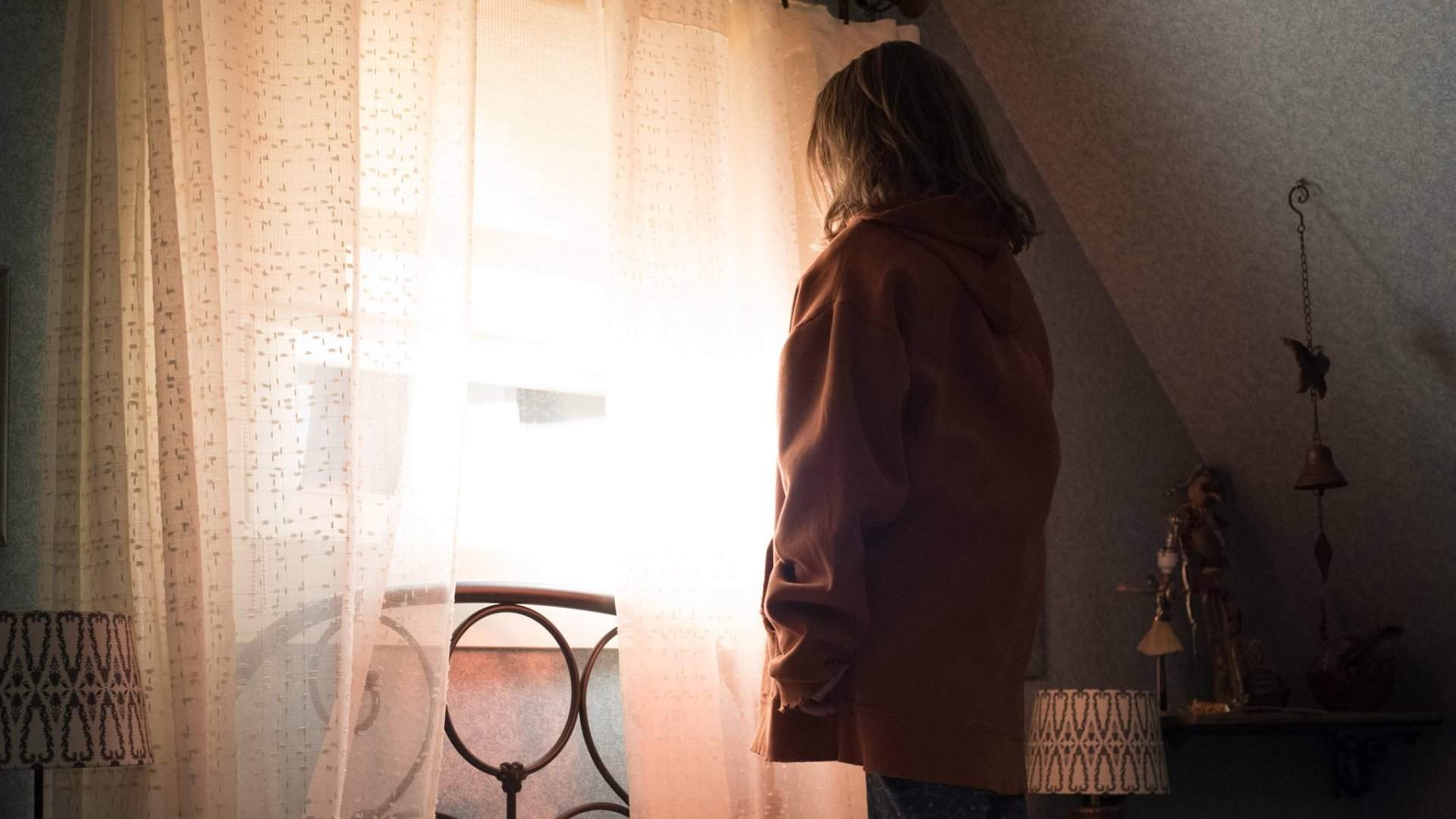Hereditary
Toni Collette stars in this fist-clenching, teeth-grinding horror film.
Overview
Dread doesn't get enough credit. It's the emotion of worried anticipation and, as unpleasant and unsettling as it may be, it's the backbone of any truly unnerving horror movie. While startling bumps might elicit momentary jumps, spending an entire film in a state of distress is another experience entirely. Unravelling the struggles of a family wrestling with loss, trauma and unexplained events, Hereditary serves up more than a few well-executed shocks — but it's the picture's unrelenting mood of apprehension and anxiety that marks Ari Aster's debut feature as a disturbing, discomforting masterpiece.
Hereditary begins with a piece of text that no one likes to read: a funeral notice for the Graham family matriarch. Yet as the deceased's relatives prepare for the service, only 13-year-old Charlie (Milly Shapiro) appears visibly upset. If her mum Annie (Toni Collette) bears any sorrow about the passing of her own mother, it's channelled into the miniature dioramas she's busy handcrafting — recreations of her sprawling forest-adjacent house and events from her everyday life, including the dearly departed's final days. Still, all isn't particularly well in the slowly disintegrating Graham household. There's distance between Annie and her psychiatrist husband Steve (Gabriel Byrne), while teenage son Peter (Alex Wolff) is happier smoking joints between his high school classes than interacting with his family.
If the story so far sounds like a routine drama, that's Aster's wheelhouse in a way. In acclaimed short films Munchausen and The Strange Thing About the Johnsons, the writer-director probed the problems that reside behind blood ties — only to take seemingly commonplace scenarios, and then up the ante in a provocative and unexpected manner. In Hereditary, he plagues the movie's protagonists with weird occurrences, including strange words etched into walls, odd flashes of light, upsetting strangers and alarming seances. He is making a horror film, after all. But more than that, Aster doubles down on tragedy, stretches the characters' emotional limits and heightens their psychological strain, trapping the Grahams in a situation devoid of hope, escape or choice. There's a reason that one of the movie's most pivotal scenes, involving Annie unburdening her pain to a support group, expands upon the family's history of mental stress.
As we've already mentioned, all of the above mightn't sound overly revolutionary, especially if you've seen Rosemary's Baby, The Shining or The Babadook, three films Hereditary recalls in the best possible fashion. In the same vein as many supernatural spookfests, the involvement of a mysterious woman (Ann Dowd) who tries to help Annie with her grief mightn't sound unusual either. But in a movie that embraces the bleakness of life, and the way that grimness can feel like an unshakeable curse, it's how Hereditary tells its sinister tale that lifts the picture well beyond standard scary territory. If Annie's tiny creations appear painstaking and precise, they've got nothing on Aster's level of meticulousness. Thanks to roaming, grey-hued cinematography, every frame of the film bristles with unease. Courtesy of a score heavy on saxophone and percussion, every sound rattles the nerves. And, with the movie taking the slow-burning approach to an intense and insidious extreme, dwelling in the Grahams' unhappy existence is a fist-clenching, teeth-grinding exercise in deep-seeded tension.
One of the year's best flicks — frightening or otherwise —Hereditary has another trick up its sleeve. It's not a huge twist or an especially terrifying moment, although the film contains both. Simply put, the movie wouldn't and couldn't be the powerhouse factory of dread that it is without Collette. The Australian actor played with all things unnerving back in The Sixth Sense, but now haunts this picture like a woman possessed with a lifetime's worth of worry, fear and anger. While Shapiro and Wolff also play their parts to perfection, Collette's expressive face couldn't encapsulate Hereditary's horrors better. When she reacts with fright, pain, anxiety and terror, so does the audience.
Keen to know more about this terrifying flick? We went behind the scenes with Hereditary director Ari Aster.





